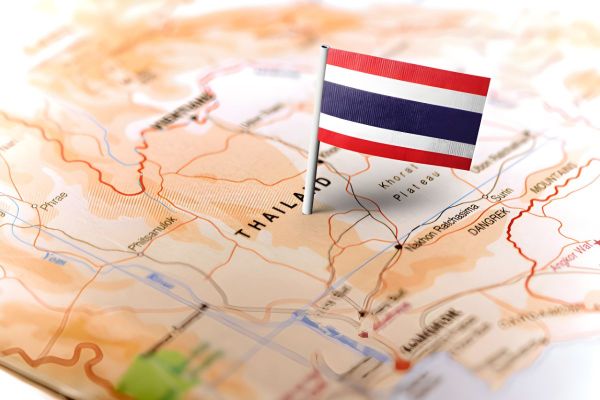
If Thailand is on your radar for 2025 and beyond, it’s time for a quick catch-up on what’s happening with the country’s entry requirements. There’s been a bit of a shakeup recently, and it’s worth understanding what’s changed, especially if you’re a frequent flyer or planning that long-awaited Southeast Asian adventure.
Thailand was originally set to launch an Electronic Travel Authorisation (ETA) system starting December 1, 2024, for visa-exempt travellers. The idea was to tighten immigration control, speed up border processing, and bring tourist entry more in line with global digital norms. But after several delays and policy reviews, that plan has now been scrapped.
As of July 25, 2025, Thailand is replacing the ETA with a new system called the Thailand Digital Arrival Card (TDAC). The goal is the same: better pre-arrival screening, smoother immigration, but the format has shifted.
The ETA plan ran into delays, partly due to Thailand’s proposed THB 300 tourist tax, which would require online prepayment before arrival. That plan is still pending Cabinet approval, but the infrastructure overlap forced the government to rethink its strategy.
Instead of launching two separate systems, they’re rolling everything into one: a unified Digital Arrival Card system.
The Thailand Digital Arrival Card (TDAC) will act as a pre-arrival registration system. It’s aimed at travellers who can enter Thailand without a visa, but will also apply to others depending on the length and purpose of stay.
While many of the rules are still being finalised, here’s what we know so far:
Visitors from 93 visa-exempt countries will be required to register for the Thailand Digital Arrival Card (TDAC) before each trip. However, nationals from Laos, Cambodia, and Malaysia were set to be exempt from even needing the ETA.
Furthermore, those with long-term visas, Destination Thailand visas, diplomatic passports, or consular tourist visas will likely have the option to skip it, but it’s still recommended.
Thailand’s Digital Arrival Card (TDAC) is not a visa and doesn’t replace one. Think of it more like a digital permission slip that helps immigration officials verify who’s coming in and when.
Each Thailand Digital Arrival Card (TDAC) will cover a single entry of up to 60 days, with the possibility of extending the stay for another 30 days.
Applications will be submitted online through an integrated platform that also hosts Thailand’s e-Visa system. The full rollout is expected by mid-2025.
The TDAC itself will be free of charge, though it may be bundled with the THB 300 tourist tax if that gets approved.
As with any pre-arrival system, getting approved doesn’t guarantee entry. Thai border officials still have final say.
If you’re planning a trip to Thailand in late 2025 or beyond, don’t expect to just show up with your passport anymore, even if you’re from a visa-free country. The TDAC will become part of the travel prep routine, right alongside booking flights and hotels.
The upside? Faster immigration clearance and fewer paper forms to fill out on arrival.
The catch? You’ll need to stay on top of the requirements and timelines, especially if the tourist tax gets added to the mix.
This move is part of Thailand’s broader strategy to modernise its border control while still encouraging tourism. Back in July 2024, the country expanded visa-free access to more nationalities, opening the door to increased visitor flow.
Now, with TDAC, the government is trying to strike a balance, making it easier for genuine tourists to enter, while tightening controls on overstays and unauthorised entries.
Thailand’s travel rules are evolving fast. The ETA is officially off the table, and the TDAC is the new digital checkpoint. It’s free, it’s online, and it’s becoming essential for most short-term visitors.
If you’re planning a trip in the coming months, keep an eye on the Ministry of Foreign Affairs or the Thai embassy websites. Requirements may shift again, especially if the tourist tax is approved.
Follow and connect with us on Facebook, Twitter, LinkedIn, Instagram and Google News for the latest travel news and updates!